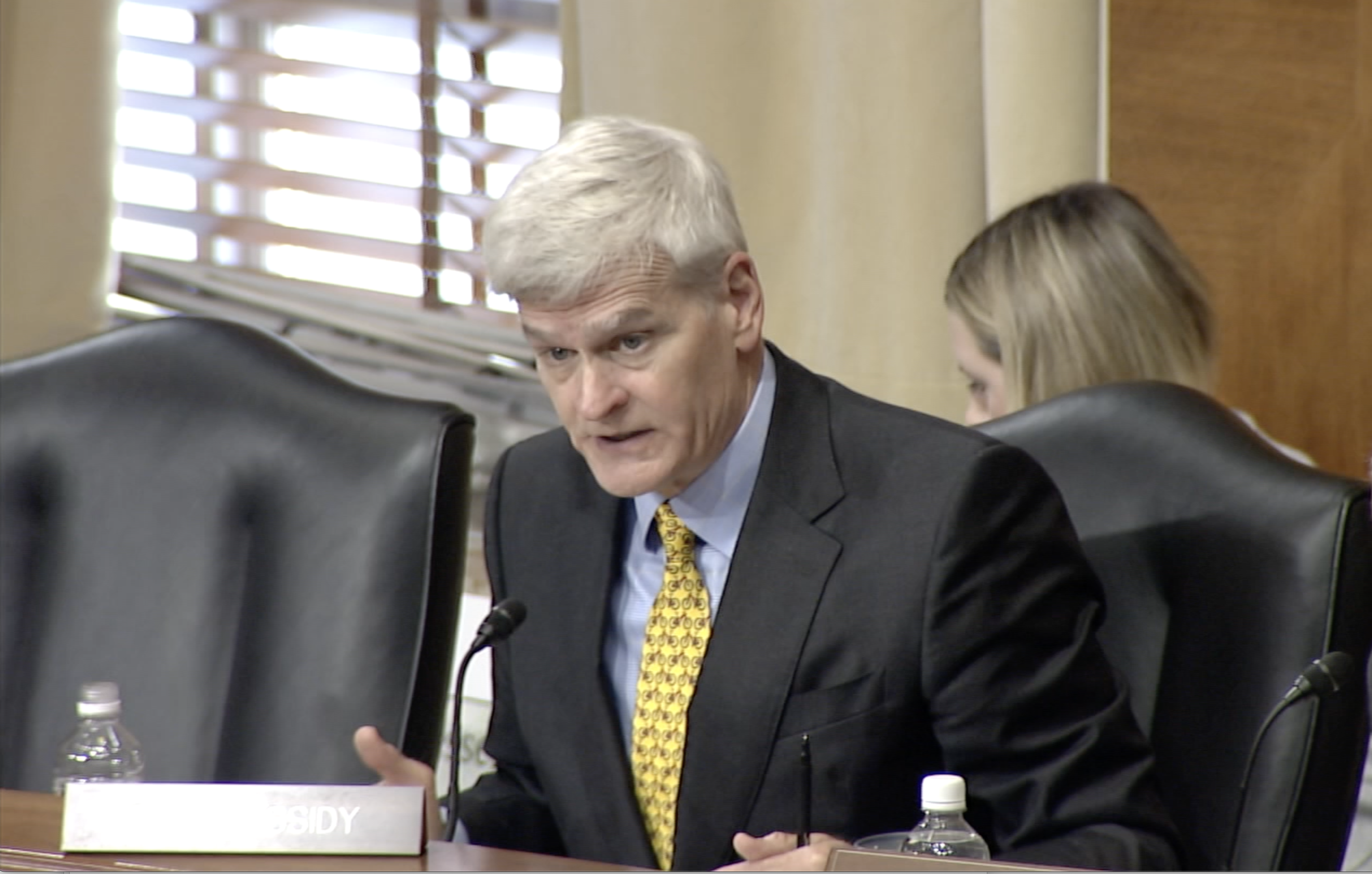WASHINGTON – U.S. Senator Bill Cassidy, M.D. (R-LA) grilled Biden administration officials from the Bureau of Ocean Energy Management (BOEM) and the National Marine Fisheries Service (NMFS) on their hostility towards oil and gas development during a Senate Energy and Natural Resources Committee hearing. He specifically highlighted the hypocrisy underlying speed restrictions for the oil and gas industry related to the Rice’s whale in the Gulf of Mexico.
There’s only been one confirmed sighting of the Rice’s Whale in the Gulf of Mexico and yet there are restrictions that only apply to vessels in the energy industry—not military, commercial fishing, or recreational. He questioned the justification of the far-reaching vessel restrictions for a species of whale that has only been confirmed once outside the core area.
“The last refuge of the scoundrel is saying ‘That’s what the science says.’ We’ve seen consistently how that’s been used to manipulate the American people. There has been one confirmed sighting of a Rice’s Whale outside that core area ever. And that’s being used to create a band from Florida to Texas, through which in an uneconomical way, vessels required to develop Outer Continental Shelf oil can only go ten miles per hour, but no other vessel—not military, not recreational, not fishing, etc.… How [does this not] represent hostility by the administration to the jobs that the working Americans have in [the oil and gas] industry?” asked Dr. Cassidy.
He noted this is another example in the Biden administration’s pattern he calls the “death by a thousand cuts” to Americans working in the oil and gas industry.
“If you’re the guy or the gal making your living [and] sending your kid to a better school because you work in an industry related to [oil and gas], as many in Louisiana and others do, you’ve got to feel like you got a big target on you by the Biden administration. They’re coming after me. They’re coming after my job. They don’t care about me. They just care about their agenda, which tends to be ideological, and not associated with my own economic needs. And that’s what the science says is the easy rope a dope [especially when] there’s only been one sighting,” continued Dr. Cassidy.
Cassidy also highlighted that energy developed in the Gulf of Mexico has the lowest carbon footprint and yet the Biden administration continues to turn to foreign countries, many adversarial, for natural resources we produce more cleanly in the U.S. In doing so, President Biden sacrifices good-paying jobs and environmental benefits for the sake of his ideological agenda.
“We’re not going to make the same progress against climate change if we choose to get our oil and gas resources from areas of the world that have lower environmental standards. It’s been documented by a national lab that the production of the Gulf of Mexico has the lowest carbon intensity of any oil that comes to our nation to be refined. Since we know we’re going to be using oil, why not get it where there’s a lower carbon intensity? And oh, by the way, it creates American jobs,” said Dr. Cassidy.
Background
Earlier this year, a coalition of radical environmental interest groups filed a petition with the National Oceanic and Atmospheric Administration (NOAA) to establish year-round vessel speed restriction zones and other mitigation measures for Rice’s whales—a species of whale that was only recognized by NOAA as a distinct species two years ago. In response, NOAA proposed a rule to establish critical habitat for the species where they acknowledged critical oil and gas and military activity occurs.
Similarly, BOEM reached a sue and settle agreement with radical environmental interest groups to establish vessel transit restrictions and other obligations for offshore oil and gas leaseholders only including the removal of millions of unleased acres from leasing. Although a federal district court ruled that BOEM could not do so, it’s expected these stipulations and the effort to withdraw acreage will continue to be a threat to future 5-year offshore oil and gas leasing programs.
Last month, Cassidy led the introduction of the Warding Off Hostile Administrative Lease Efforts (WHALE) Act to prevent the U.S. Departments of Commerce and the Interior from issuing maritime rules related to the Rice’s whale that would impede offshore energy development and military activities. He also joined colleagues in urging NOAA and NMFS to withdraw a proposed rule designating more than 28,270 square miles of the Gulf of Mexico as a “critical habitat” for the newly discovered Rice’s whale—a clear attempt to shut down oil and gas operations in the area over a single sighting of a whale in 2017.
###
